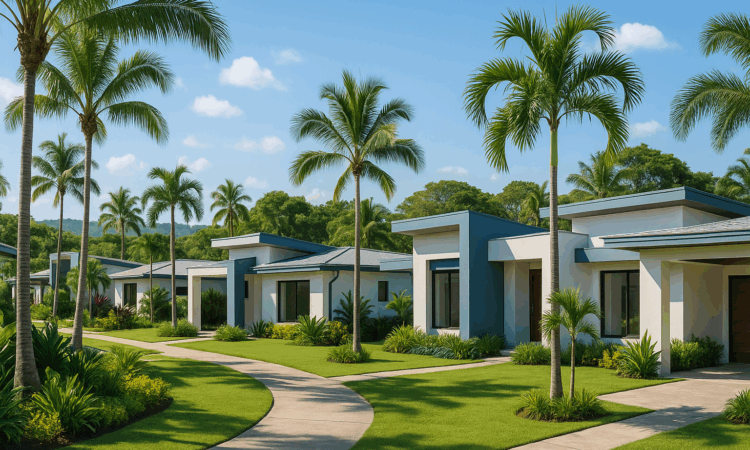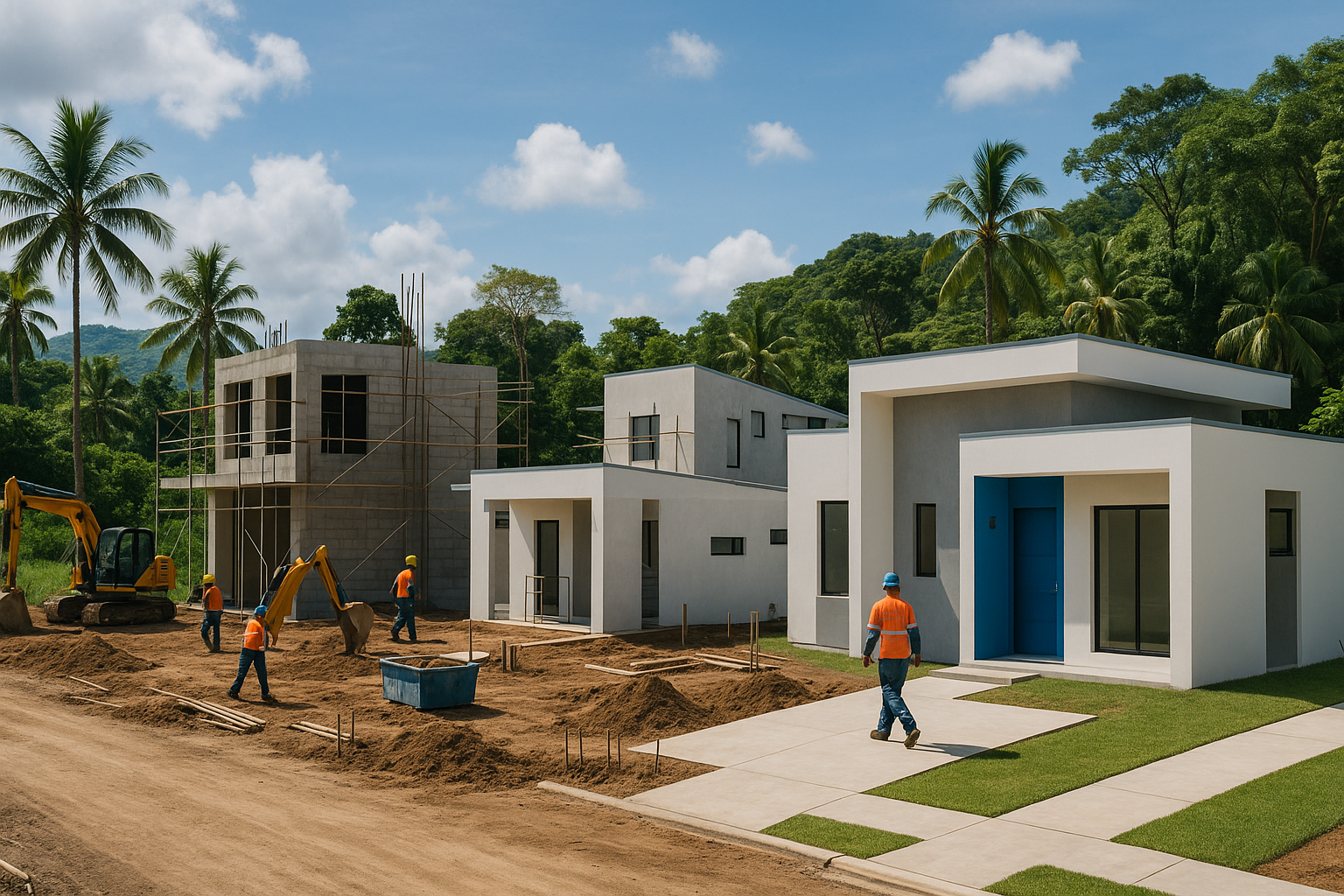
Residential Loans in Costa Rica: Complete Guide for Private Lenders 2025
Introduction: The Residential Lending Opportunity in Costa Rica
At GAP Investments, we’ve been facilitating residential lending opportunities for over two decades, connecting private lenders with qualified borrowers throughout Costa Rica. Our comprehensive understanding of local market conditions, regulatory requirements, and borrower profiles enables us to structure residential loans that benefit both lenders and borrowers while maintaining appropriate risk management standards.
This guide provides private lenders with essential information about residential lending opportunities in Costa Rica, including market dynamics, loan structures, risk management strategies, and the support services available through GAP Investments. Whether you’re new to private lending or looking to expand your portfolio into Costa Rican residential real estate, this guide will help you understand the opportunities and requirements for success.
Costa Rica Residential Market Overview
Understanding the Costa Rican residential market is crucial for private lenders considering investment opportunities. Several factors make this market particularly attractive for residential lending:
Population Growth and Urbanization
Costa Rica’s population continues to grow steadily, with increasing urbanization driving demand for quality housing in major metropolitan areas. Cities like San José, Cartago, Heredia, and coastal regions are experiencing significant residential development activity.
Foreign Investment and Expat Community
The growing expat community, particularly from North America and Europe, creates consistent demand for quality residential properties. Many foreign residents seek financing for home purchases, renovations, and investment properties.
Economic Stability
Costa Rica’s stable economy and democratic government provide a secure environment for real estate investment and lending. The country’s commitment to education, healthcare, and environmental protection attracts residents and investors alike.
Tourism and Vacation Rental Market
The strong tourism industry creates demand for vacation rental properties, providing additional income potential for residential property owners and creating opportunities for specialized lending products.
Residential Lending Opportunities
Private lenders can participate in various types of residential lending opportunities in Costa Rica, each with distinct characteristics and return profiles:
Purchase Money Loans
These loans help borrowers purchase existing residential properties or newly constructed homes. Purchase money loans typically offer loan-to-value ratios of 50-70% and terms ranging from 1-3 years, with annual returns of 12-16% for private lenders.
Construction and Development Financing
Private lenders can finance residential construction projects, from single-family homes to small residential developments. These loans often provide higher returns (14-18% annually) due to the additional complexity and shorter terms involved.
Renovation and Improvement Loans
Homeowners seeking to renovate or improve their properties often require financing that traditional banks may not provide. These loans typically have shorter terms (6 months to 2 years) and offer competitive returns for private lenders.
Bridge Financing
Bridge loans help borrowers transition between properties or secure quick financing while arranging permanent financing. These short-term loans (3-12 months) often provide attractive returns for private lenders willing to provide quick capital.
Investment Property Financing
Investors purchasing residential properties for rental income or vacation rental operations often seek private financing. These loans can be structured with various terms depending on the property’s income potential and the borrower’s experience.
Loan Structures and Terms
GAP Investments structures residential loans to balance attractive returns for private lenders with manageable terms for borrowers:
Interest Rates and Returns
Private lenders typically earn annual returns ranging from 12% to 18%, depending on loan type, term, and risk profile. Interest rates are competitive with market conditions while providing attractive returns compared to traditional investment options.
Loan-to-Value Ratios
Most residential loans maintain conservative loan-to-value ratios of 50-70%, providing substantial equity cushion to protect lender interests. Higher LTV ratios may be available for exceptional borrowers or properties with strong income potential.
Loan Terms
Residential loan terms typically range from 6 months to 3 years, with most loans structured for 12-24 months. Shorter terms provide quicker capital turnover for lenders, while longer terms offer stability for borrowers.
Payment Structures
Loans can be structured with various payment options, including interest-only payments with balloon principal payment, monthly principal and interest payments, or customized payment schedules based on borrower cash flow and lender preferences.
Security and Collateral
All residential loans are secured by first mortgages on the subject properties, with comprehensive title insurance and property insurance requirements. Additional collateral may be required for larger loans or higher-risk borrowers.
Risk Management and Due Diligence
Successful residential lending requires comprehensive risk management and due diligence processes. GAP Investments employs rigorous standards to protect lender interests:
Borrower Qualification
We conduct thorough evaluations of borrower creditworthiness, including income verification, credit history analysis, and assessment of experience with real estate transactions. Our local knowledge helps us evaluate borrowers effectively.
Property Evaluation
Professional property appraisals are conducted for all loans, with additional market analysis to ensure realistic valuations. We consider factors such as location, condition, market trends, and income potential when evaluating properties.
Legal and Title Review
Our legal team conducts comprehensive title searches and ensures proper documentation for all loans. We work with experienced local attorneys to navigate Costa Rican real estate law and protect lender interests.
Insurance Requirements
All properties securing residential loans must maintain comprehensive property insurance with GAP Investments named as loss payee. We also require title insurance to protect against title defects or claims.
Ongoing Monitoring
We provide ongoing monitoring of loan performance, property conditions, and market factors that may affect loan security. Regular communication with borrowers helps identify and address potential issues early.
Benefits for Private Lenders
Private lenders participating in Costa Rican residential lending through GAP Investments enjoy numerous advantages:
Attractive Returns
Annual returns of 12-18% significantly exceed traditional investment options while maintaining reasonable risk levels through conservative underwriting and collateral requirements.
Portfolio Diversification
Costa Rican residential loans provide geographic and currency diversification for investment portfolios, with exposure to a stable, growing economy.
Professional Management
GAP Investments handles all aspects of loan origination, underwriting, documentation, and servicing, allowing lenders to enjoy passive income without operational responsibilities.
Local Expertise
Our 20+ years of experience in Costa Rica provide unparalleled insight into local market conditions, regulatory requirements, and cultural factors affecting residential lending success.
Flexible Investment Options
We offer various investment structures to accommodate different lender preferences, including individual loan participation, portfolio lending, and fund-based investment options.
Frequently Asked Questions (FAQ)
1. What is the minimum investment amount for residential lending?
Minimum investment amounts typically range from $50,000 to $200,000, depending on the specific loan opportunity and investment structure. We work with lenders to find opportunities matching their investment capacity.
2. How are residential loans secured?
All residential loans are secured by first mortgages on the subject properties, with comprehensive title insurance and property insurance requirements. Conservative loan-to-value ratios provide additional security.
3. What returns can I expect from residential lending?
Private lenders typically earn annual returns ranging from 12% to 18%, depending on loan type, term, and risk profile. Returns are competitive with market conditions while providing attractive yields.
4. How long are typical residential loan terms?
Residential loan terms typically range from 6 months to 3 years, with most loans structured for 12-24 months. Terms are designed to balance lender return objectives with borrower needs.
5. Can foreign lenders participate in Costa Rican residential lending?
Yes, foreign lenders are welcome to participate in Costa Rican residential lending. We have extensive experience working with international lenders and can guide you through any regulatory requirements.
6. What due diligence is performed on borrowers and properties?
We conduct comprehensive due diligence, including borrower credit analysis, income verification, professional property appraisals, title searches, and legal review, to ensure loan quality and security.
7. How do you handle loan defaults or problems?
We have established procedures for managing problem loans, including workout strategies, foreclosure processes, and asset disposition. Our proactive approach helps minimize losses and protect lender interests.
8. What ongoing reporting do lenders receive?
Lenders receive regular reports on loan performance, payment status, and any relevant developments. We maintain open communication throughout the loan term to keep lenders informed.
9. Are there any fees for participating as a private lender?
Our fees are transparent and competitive, typically including origination and servicing fees that are disclosed upfront. There are no hidden fees or surprise charges for lender participants.
10. How quickly can I start earning returns from residential lending?
Once qualified as a lender, we can typically present residential lending opportunities within 30-60 days, depending on market conditions, your investment criteria, and available capital.
Start Your Residential Lending Journey Today
Costa Rica’s residential lending market offers exceptional opportunities for private lenders seeking attractive returns and portfolio diversification. With GAP Investments’ expertise and comprehensive support services, you can participate in this growing market with confidence.
Contact us today to learn more about residential lending opportunities and how you can become part of Costa Rica’s dynamic real estate financing market.
- WhatsApp: +506 4001-6413
- USA/Canada toll-free: 855-562-6427
- Email: [email protected]
- Website: https://gapinvestments.com/
- Loan applications: https://www.gapequityloans.com/en/loan-request/
Article by Glenn Tellier (Founder of CRIE and Grupo Gap)



